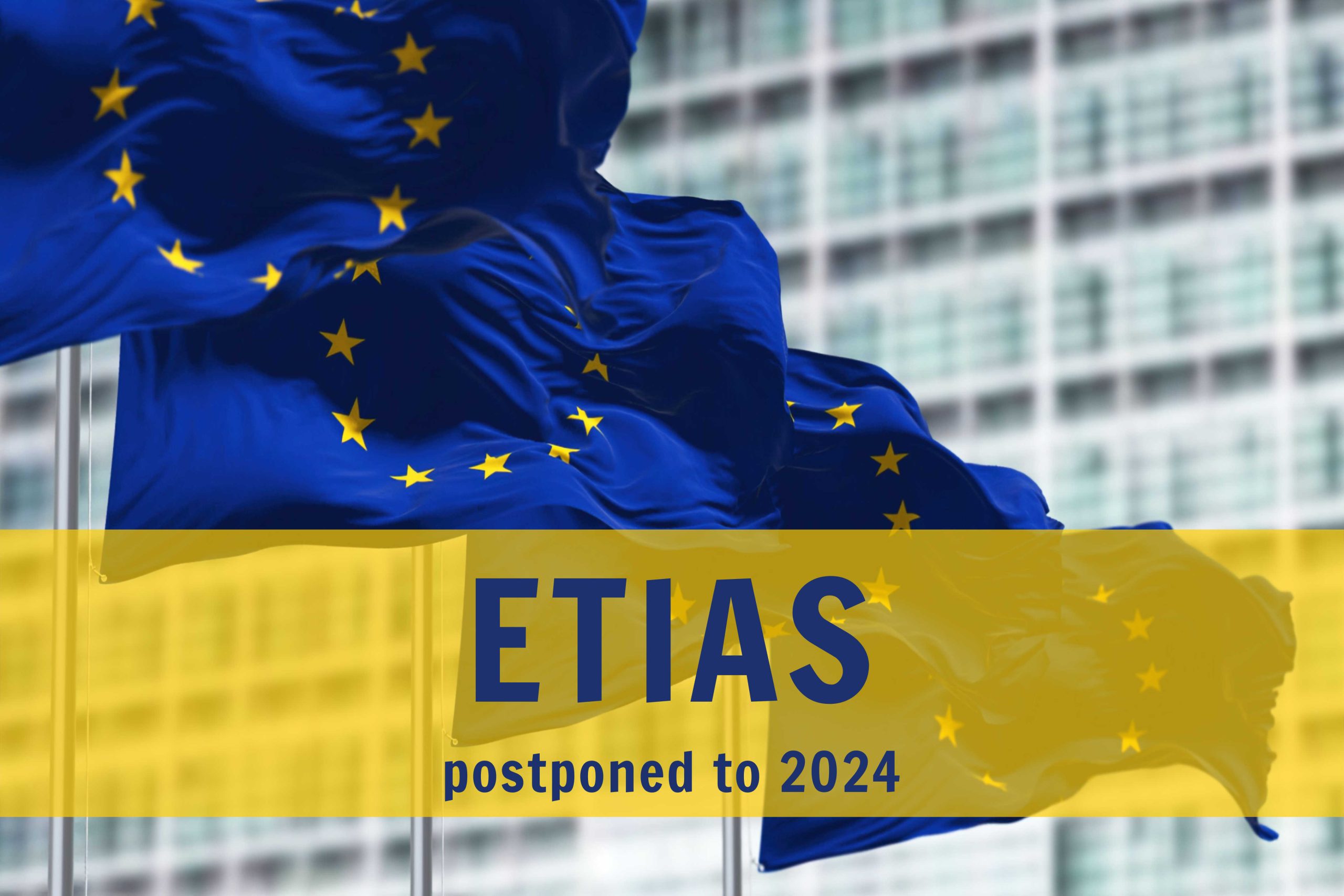The EU has postponed the implementation of the new European Travel Information and Authorization System (ETIAS) to 2024. The previous launch date was November 2023, and before that, May 2023.
In fact, the ETIAS launch date has been changed several times since the ETIAS Regulation 2018/1240 came into effect in October 2018, two years after the European Commission proposed it.
When the European Agency for the operational management of large-scale IT systems in the area of freedom, security, and justice (eu-LISA) started developing ETIAS, its expected launch date was 2021. Then, it was rescheduled for the end of 2022, and then, for two different months in 2023. Now, the latest update on the European Union’s websites places the ETIAS expected launch date in 2024.
The European Travel Information and Authorization System (ETIAS) is an automated IT system specifically created to verify the information of visa-exempt non-EU travelers who want to enter the Schengen area for a short stay (up to 90 days in any 180-day period).
The goal of ETIAS is to detect security, irregular migration, or high epidemic risks by conducting checks against various databases.
ETIAS is a project that belongs to the European Security Union, which intends to apply EU security policies taking into account evolving threats, step up the fight against terrorism and organized crime, and strengthen the external borders of the European Union. Once it is operational, ETIAS will serve the objectives of the European Agenda on Security and Migration.
The application process for ETIAS will be entirely online and will require travelers to provide personal and travel information, including their name, date of birth, passport details, etc. It is meant to last from a few minutes to 96 hours in most cases —unless additional information is required. In this case, the application process for ETIAS can take up to one month. If approved, the ETIAS travel authorization will be valid for three years or until the traveler’s passport expires.
Having an ETIAS travel authorization will be a mandatory pre-condition to travel to the Schengen area if the traveler comes from any of these visa-exempt countries:
- Albania
- Antigua and Barbuda
- Argentina
- Australia
- Barbados
- Bahamas
- Bosnia and Herzegovina
- Brazil
- Brunei
- Canada
- Chile
- Colombia
- Costa Rica
- Dominica
- El Salvador
- Georgia
- Grenada
- Guatemala
- Honduras
- Hong Kong
- Israel
- Japan
- Kiribati
- Macau
- Malaysia
- Marshall Islands
- Mauritius
- Mexico
- Micronesia
- Moldova
- Montenegro
- New Zealand
- Nicaragua
- North Macedonia
- Palau
- Panama
- Paraguay
- Peru
- Saint Kitts and Nevis
- Santa Lucia
- Saint Vincent and the Grenadines
- Samoa
- Serbia
- Seychelles
- Singapore
- Solomon Islands
- South Korea
- Taiwan
- Timor-Leste
- Tonga
- Trinidad and Tobago
- Tuvalu
- Ukraine
- Uruguay
- UAE
- UK
- USA
- Vanuatu
- Venezuela.
The application for ETIAS will cost €7. Visa-exempt family members of EU nationals or of nationals of Ireland, Switzerland, Norway, Iceland, or Liechtenstein will be exempt from this application fee, provided that they are covered by Directive 2004/38/EC, which defines the right of free movement for citizens of the European Economic Area.

